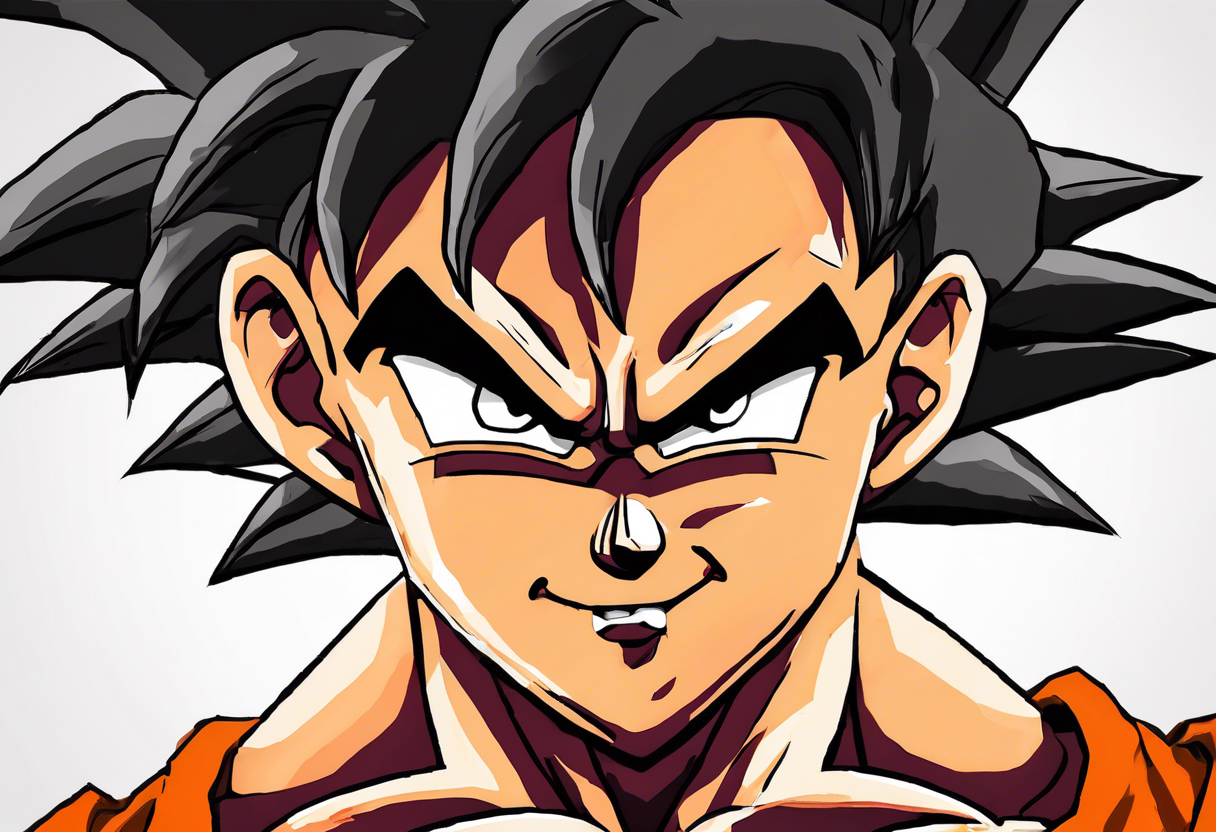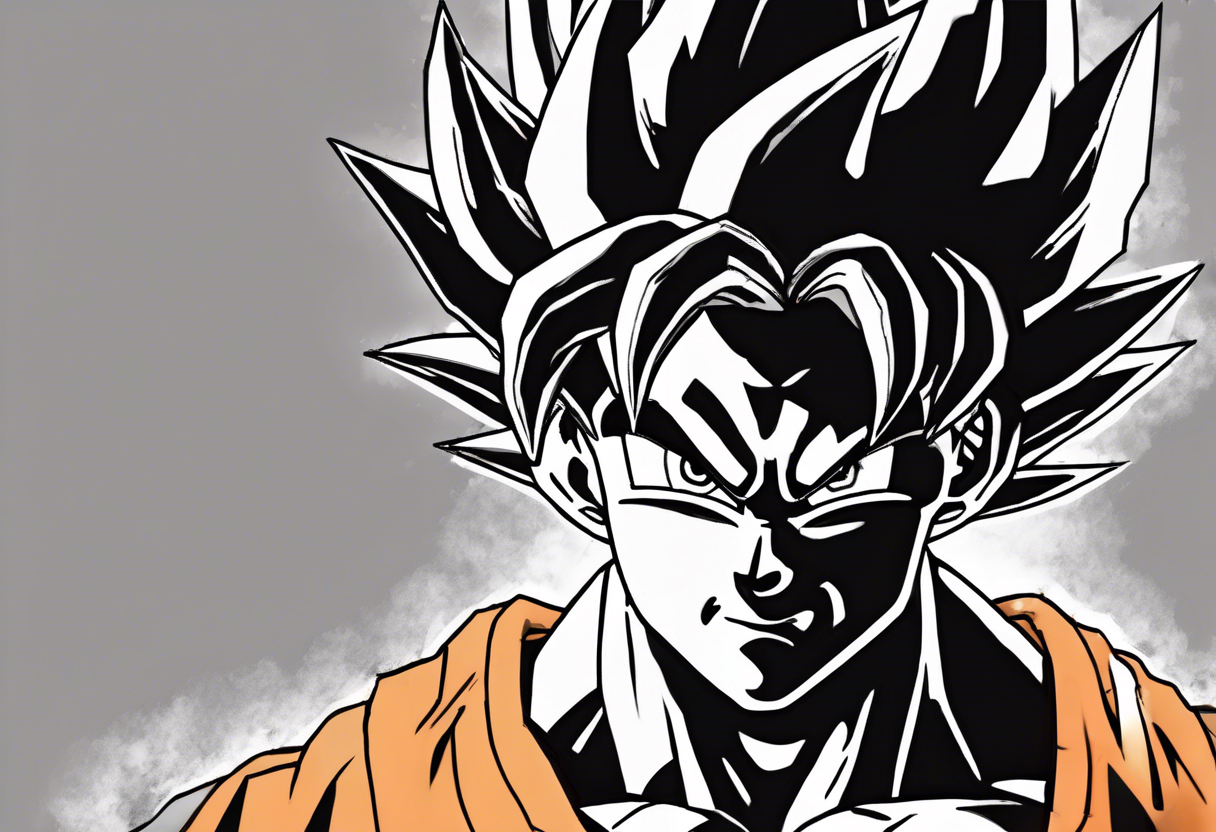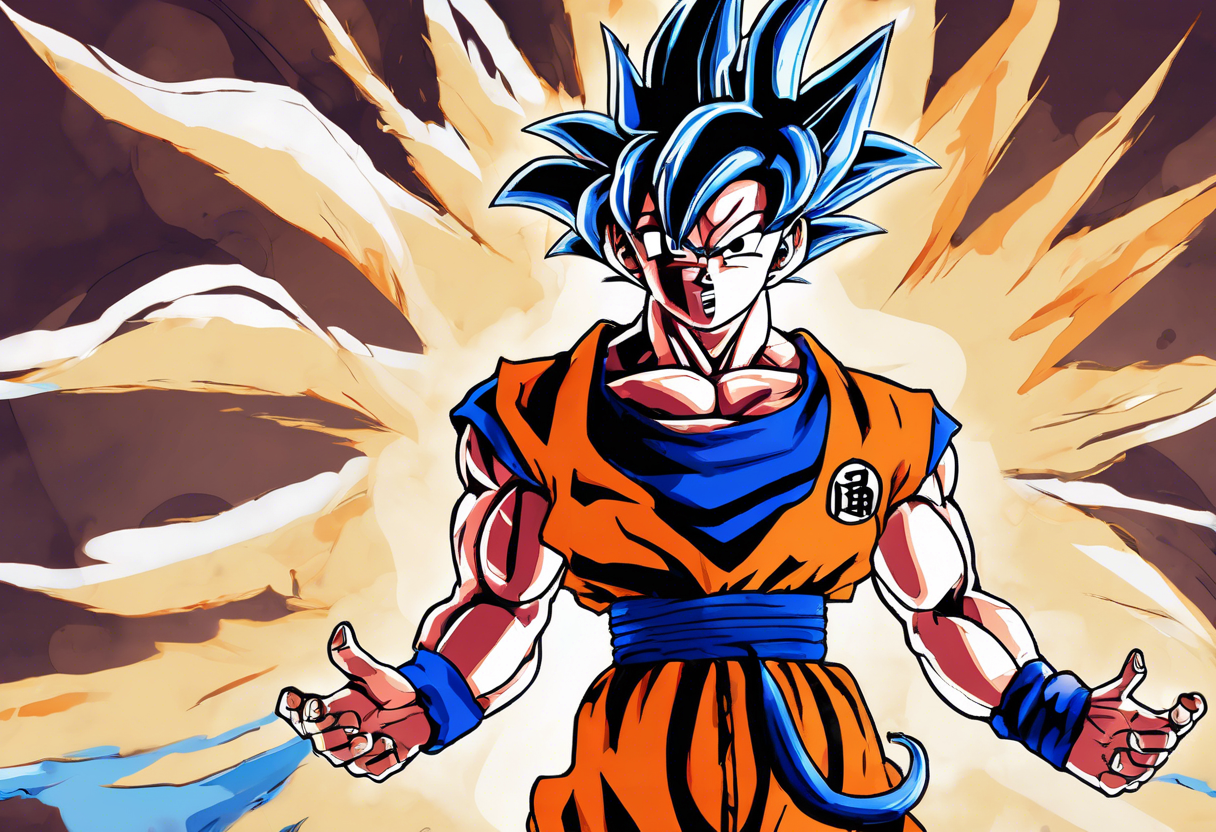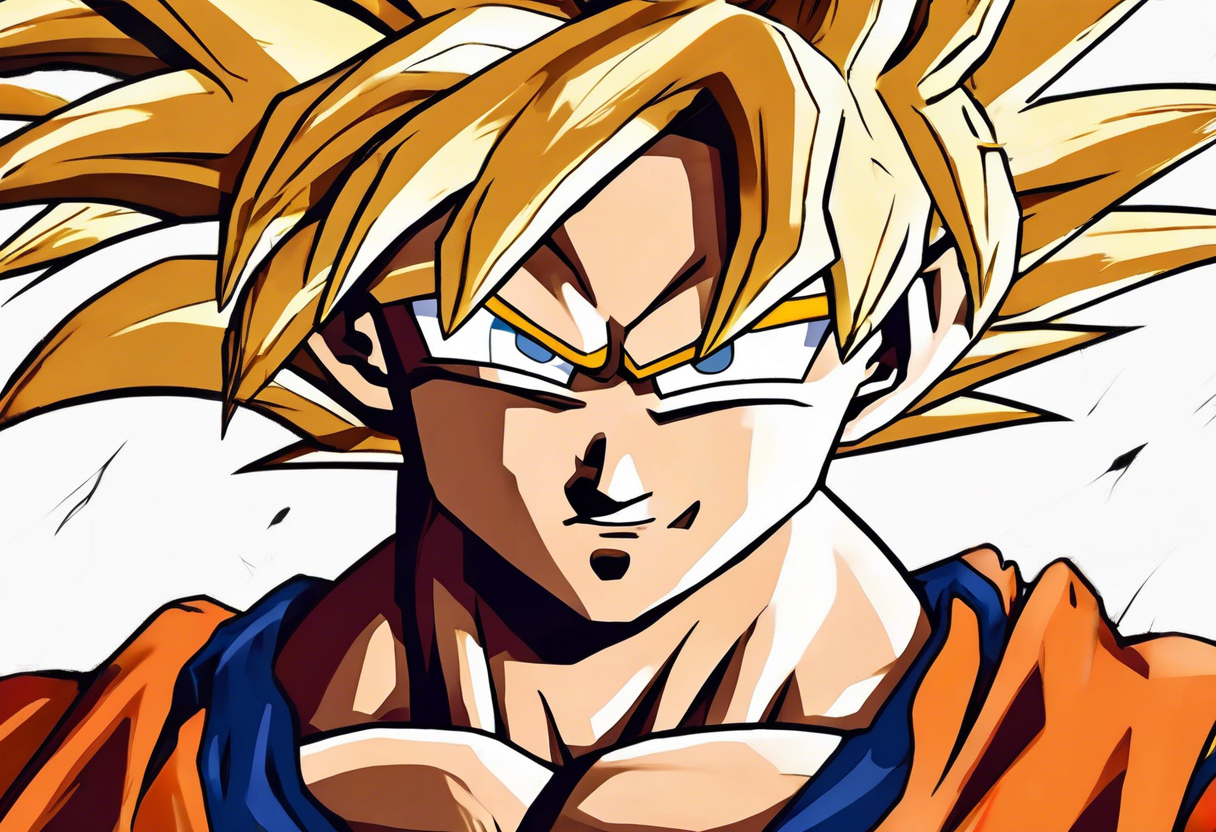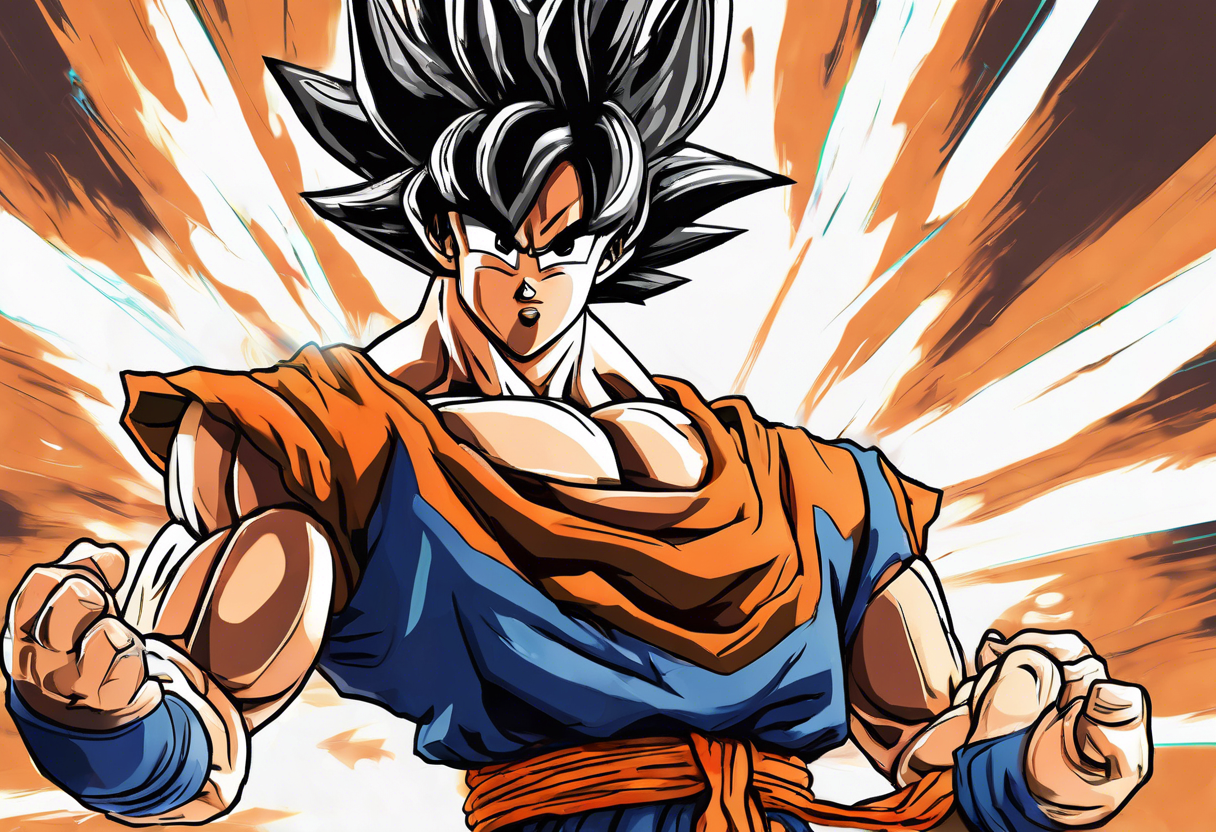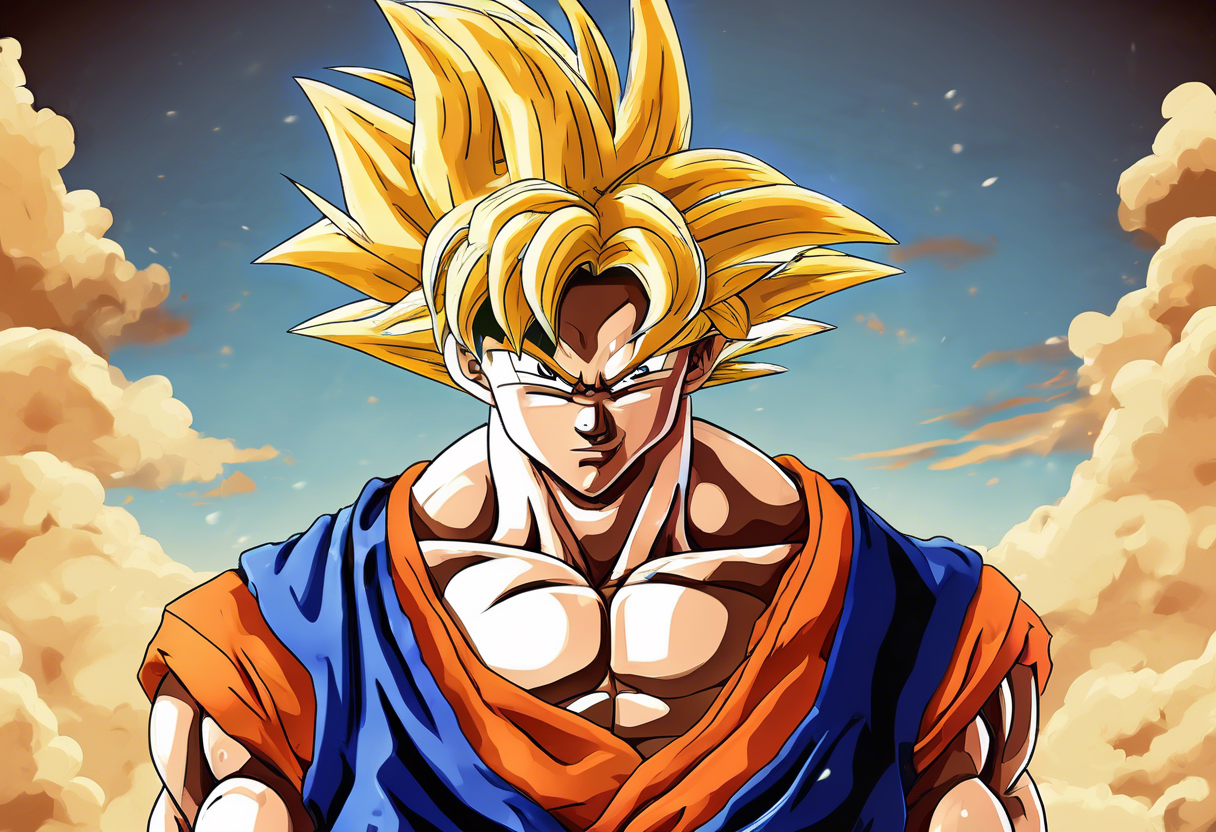Contents
Goku: The Iconic Protagonist of the Dragon Ball Series
Introduction
Son Goku, commonly known as Goku, is the main protagonist and hero of the Dragon Ball manga and anime series created by Akira Toriyama. First introduced in Chapter 1 of the Dragon Ball manga, titled "Bulma and Son Goku," which was published in Japan’s weekly Shonen Jump magazine on December 3, 1984, Goku has become an iconic figure in anime and manga culture[1][2][3].
Goku’s character is inspired by Sun Wukong, the main character from the classic Chinese novel "Journey to the West." Born on Planet Vegeta as Kakarot, Goku is the son of Bardock, a low-class Saiyan warrior, and his mother, Gine. Initially sent to Earth as an infant with the mission to destroy it, Goku’s life took a dramatic turn when he was taken in by the elderly Son Gohan, who named him Son Goku. After suffering head trauma in an accident, Goku transformed from a difficult and violent child into a friendly and pure-hearted individual, erasing his original mission to destroy Earth[1][2][3].
Role in the Story
Goku’s storyline is central to the Dragon Ball series. His journey begins when he meets Bulma, a young girl searching for the seven Dragon Balls, which have the power to grant any wish. Goku joins Bulma on her quest, marking the beginning of a series of adventures that span multiple arcs of the series. Along the way, he encounters various characters, including Master Roshi, who teaches him martial arts and introduces him to the Flying Cloud Nimbus, and Krillin, with whom he forms a strong friendship[1][2][3].
One of the defining aspects of Goku’s character is his transformation into a Great Ape when exposed to the full moon. This transformation, which he first experiences after disobeying Son Gohan’s instructions, results in the accidental death of his adoptive grandfather. This event sets Goku on a path of self-discovery and training, often isolating himself to hone his martial arts skills[1][2][3].
Throughout the series, Goku faces numerous challenges and conflicts, including battles against powerful villains such as Frieza, Cell, and Buu. His decisions, such as trusting Gohan to defeat Cell and sacrificing himself to save the Earth, highlight his selfless nature and unwavering commitment to protecting his friends and the planet[2][3].
Character Analysis
Goku’s personality is characterized by his innocence, naivety, and pure-heartedness. Despite his incredible strength and abilities, he remains humble and kind, often putting the needs of others before his own. His motivations are driven by a desire to protect and help those he cares about, which makes him a compelling and relatable character[1][4][5].
One of Goku’s greatest strengths is his unwavering determination and perseverance. He consistently pushes himself to new limits, seeking to become stronger and better equipped to face the challenges ahead. However, this determination can also be a flaw, as it sometimes leads him to overlook his own well-being and the consequences of his actions[1][2][3].
Goku’s character development is significant throughout the series. He evolves from an innocent child to a wise and powerful warrior, learning valuable lessons about friendship, sacrifice, and the importance of family. His relationships with other characters, particularly his friends and family, play a crucial role in his development, as they provide support, guidance, and motivation[5].
Themes and Symbolism
Goku embodies several key themes and symbolic elements within the Dragon Ball series. One of the most prominent themes is the power of friendship and camaraderie. Goku’s relationships with characters like Bulma, Krillin, and Gohan illustrate the strength and support that come from strong bonds of friendship[1][2][3].
Another significant theme is the concept of self-improvement and personal growth. Goku’s relentless pursuit of strength and his willingness to learn from his mistakes serve as a powerful symbol of the importance of continuous self-improvement and the value of hard work and dedication[1][2][3].
Goku also symbolizes the struggle between good and evil, often finding himself at the forefront of battles against powerful and malevolent forces. His unwavering commitment to justice and his refusal to give up, even in the face of overwhelming odds, make him a powerful symbol of hope and resilience[1][2][3].
Cultural Impact
Goku has had a profound cultural impact since his introduction in the 1980s. He has become an iconic figure in anime and manga, inspiring countless fans around the world. His influence can be seen in various adaptations and spin-offs, including movies, video games, and merchandise[1][2][3].
Goku’s cultural significance extends beyond the anime community, with his image and character being recognized globally. He has been referenced and parodied in numerous other works of media, including films, television shows, and music. His impact on popular culture is a testament to the enduring appeal of the Dragon Ball series[1][2][3].
Critical Reception
Goku has received widespread acclaim from both critics and audiences. His character has been praised for his simplicity yet depth, making him a relatable and compelling protagonist. Critics have noted his significant character development throughout the series, highlighting his growth from an innocent child to a wise and powerful warrior[4][5].
However, Goku’s character has also been subject to some criticism. Some have argued that his simplicity and naivety make him less complex compared to other characters in the series. Additionally, his tendency to rely on brute strength rather than strategy has been a point of contention among some fans and critics[4].
Despite these criticisms, Goku remains one of the most beloved and iconic characters in anime history. His enduring popularity is a testament to the strong connection he has with audiences and the significant role he plays in the Dragon Ball narrative[1][2][3].
Legacy
Goku’s legacy is profound and far-reaching. He has inspired countless other characters and series, and his influence can be seen in many aspects of popular culture. His character archetype—the powerful yet humble hero—has become a staple in many anime and manga series[1][2][3].
Goku’s relevance in contemporary discussions is also noteworthy. He continues to be a subject of analysis and debate among fans and scholars, with his character development and thematic significance being explored in depth. His enduring appeal ensures that he remains a central figure in the world of anime and manga, inspiring new generations of fans and creators alike[1][2][3].
References
- https://aminoapps.com/c/dragonballz/page/blog/history-of-goku/QKmT_XuervV17Q5Gd0jY6R280lRz31w
- https://www.superherotoystore.com/blogs/character-bios/read-dragon-ball-z-goku-character-biography-by-superherotoystore-india
- https://www.youtube.com/watch?v=8OJgQhACoL4
- https://dbzeta.net/threads/gokus-underrated-character-development-and-writing-an-analysis.16838/
- https://www.kanzenshuu.com/forum/viewtopic.php?t=10121

